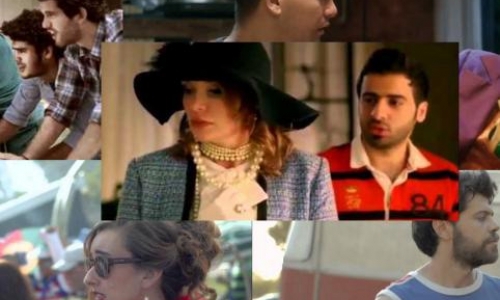Guadalupe in Morocco

Tracing the origins of a viral Snickers “You’re not you when you’re hungry” ad, Professor Nicholas Cifuentes-Goodbody, Assistant Professor and Coordinator of the MA in Translation Studies, sheds light on the role translation plays in the migration of cultural artifacts.
Have you seen the candy bar commercial where a group of young men watching football chides one of their friends for becoming overly dramatic when the ref makes a bad call: “Ahmed, whenever you get hungry, you’re worse than a Mexican soap opera!” But how do a bunch of young Arab men know about Mexican soap operas, and why would an Arabic-speaking audience find this commercial funny? The answer has to do with the history of Latin American telenovelas in the Arab world.
The term soap opera originated in the 1930s. Looking to capture a daytime (mostly domestic) audience, radio executives turned to serial dramas. In Latin America, serial dramas are called telenovelas, and the genre grows out of the 19th-century romantic novel and melodramatic theater. They are also closely associated with national narratives and the themes of nation building and development.
From an economic perspective, serial dramas occupy a special niche in global entertainment. In countries that lack the infrastructure to create their own programming, they offer a large number of episodes at low cost, and they help stabilize audience numbers during off-peak hours. This is why soap operas from the US flooded Latin America before the development of local productions in Mexico, Brazil, Venezuela, and Argentina in the 1950s. It’s the same reason that Latin American telenovelas became so prevalent in Western Europe in the 1980s and Eastern Europe in the 1990s.
To see how this relates to the Middle East and North Africa, I will focus on Morocco and the channel 2M. 2M was established in 1989 and was the first Arabic-language channel to air Latin American telenovelas such as Tú o nadie (أنت أو لا أحد) and Guadalupe (غوادلوبي). These shows were popular with Moroccan audiences in the 1990s because of their easy-to-follow plot lines and a certain exoticism, where Moroccan viewers could experience different takes on family and romantic relationships. Most importantly, they were an economical way to fill newly available airtime.
One interesting aspect of the translation of telenovelas for Arabic-speaking audiences is that these programs were originally dubbed into Modern Standard Arabic (الفصحى). On the one hand, some Arabic speakers remember these telenovelas with fond nostalgia because they helped spread and preserve the language. On the other, it is this same overly formal and dramatic language that is being parodied in the candy bar commercial I mentioned above.
People are often interested in Translation Studies because they want to be trained as translators. Of course, this is an important component of the MA in Translation Studies at HBKU. But Translation Studies is much more than professional development. As a discipline, it shows us the ways that cultural artifacts move across national and linguistic boundaries. It reveals how those artifacts are changed by the needs of new audiences and the ways in which those audiences are changed by new information. And while it might seem more “scholarly” to study how this process occurs in “high art,” it is equally important to study the movement of popular culture.
In short, there’s a lot to be learned from TV commercials and soap operas. Why not study them at HBKU?
Dr. Nicholas Cifuentes-Goodbody
Assistant Professor and Coordinator of the MA in Translation Studies








